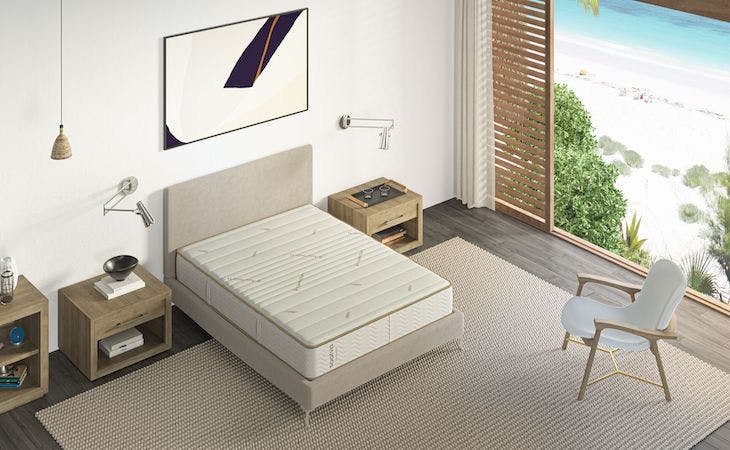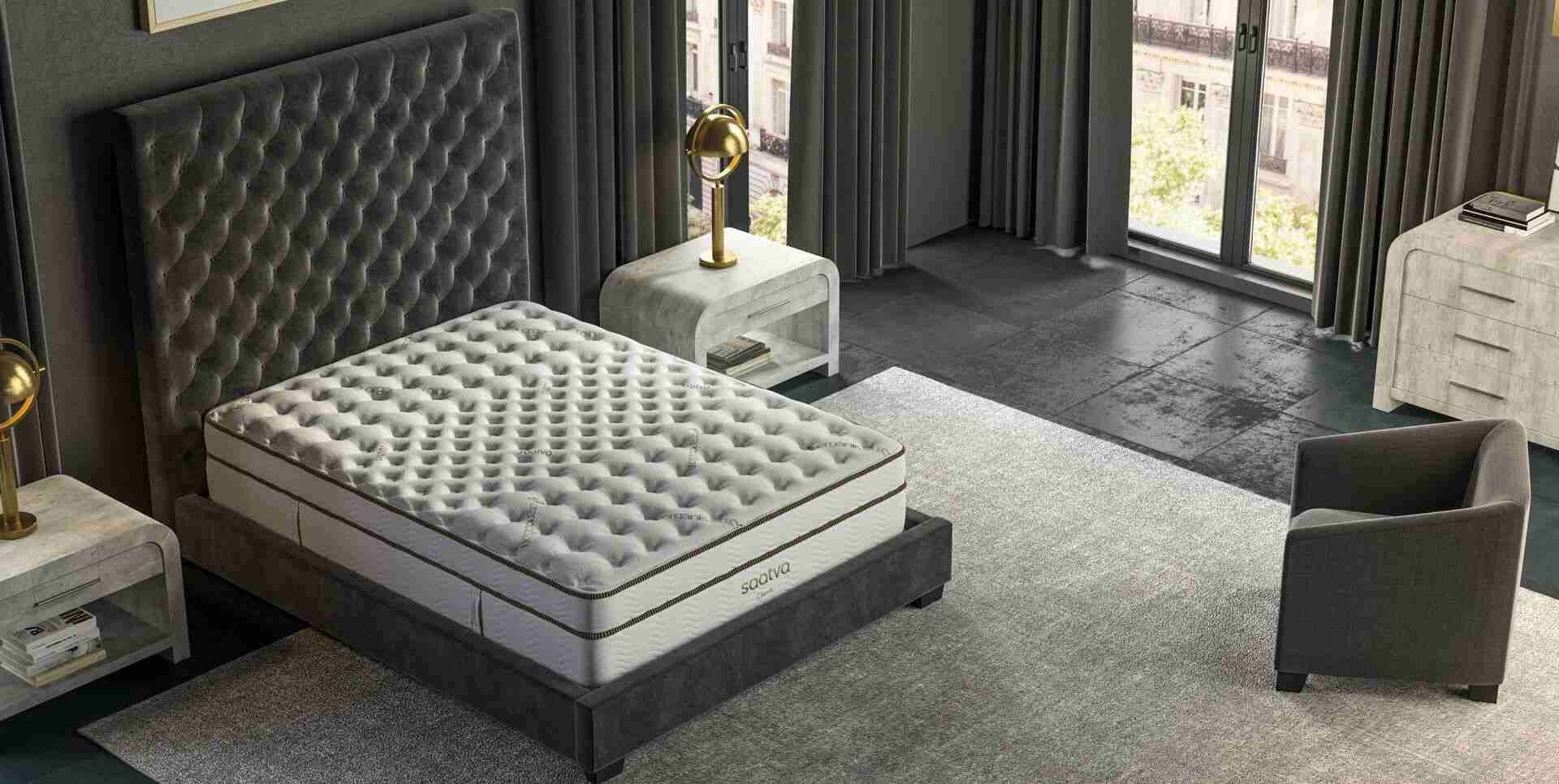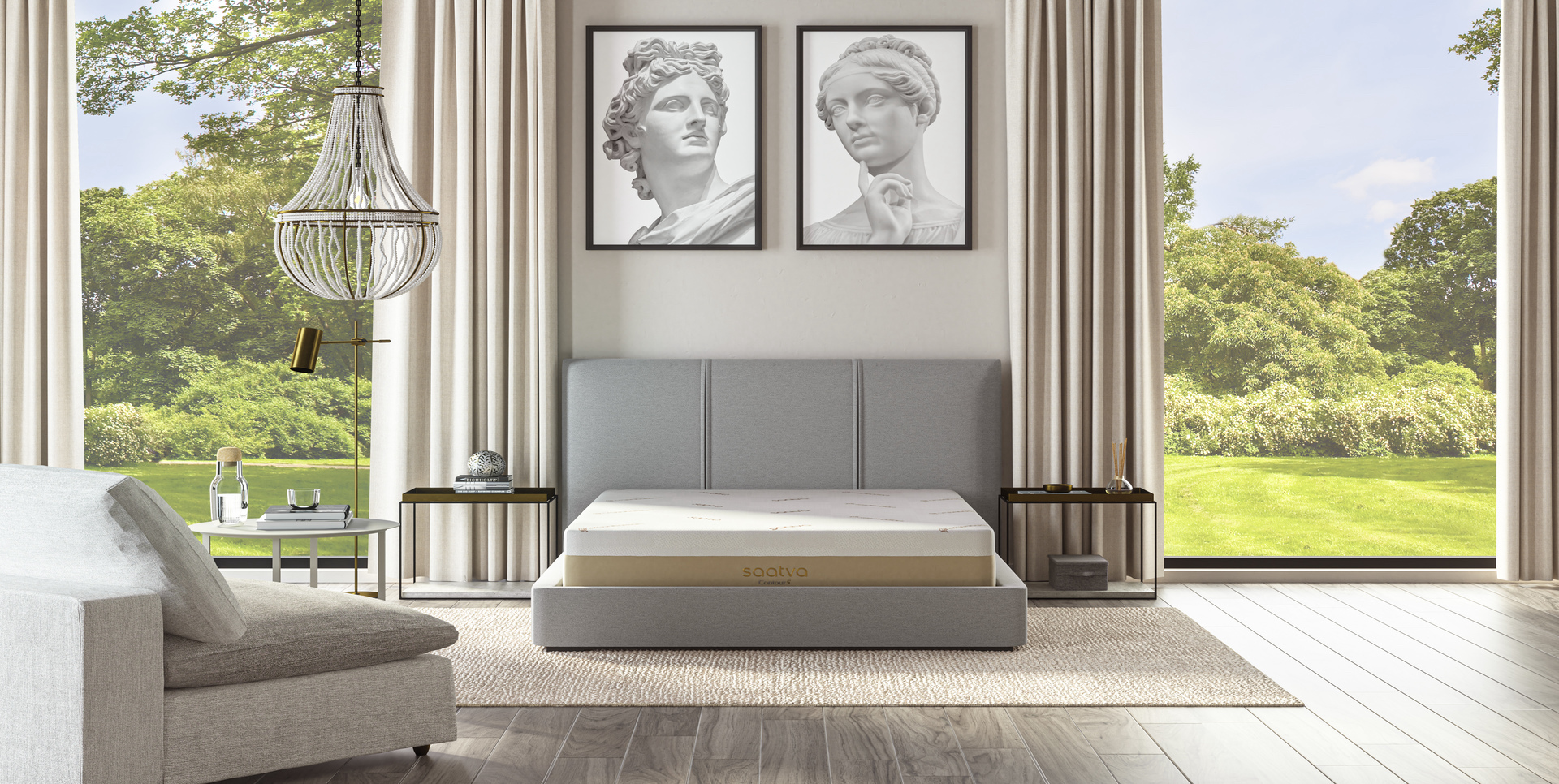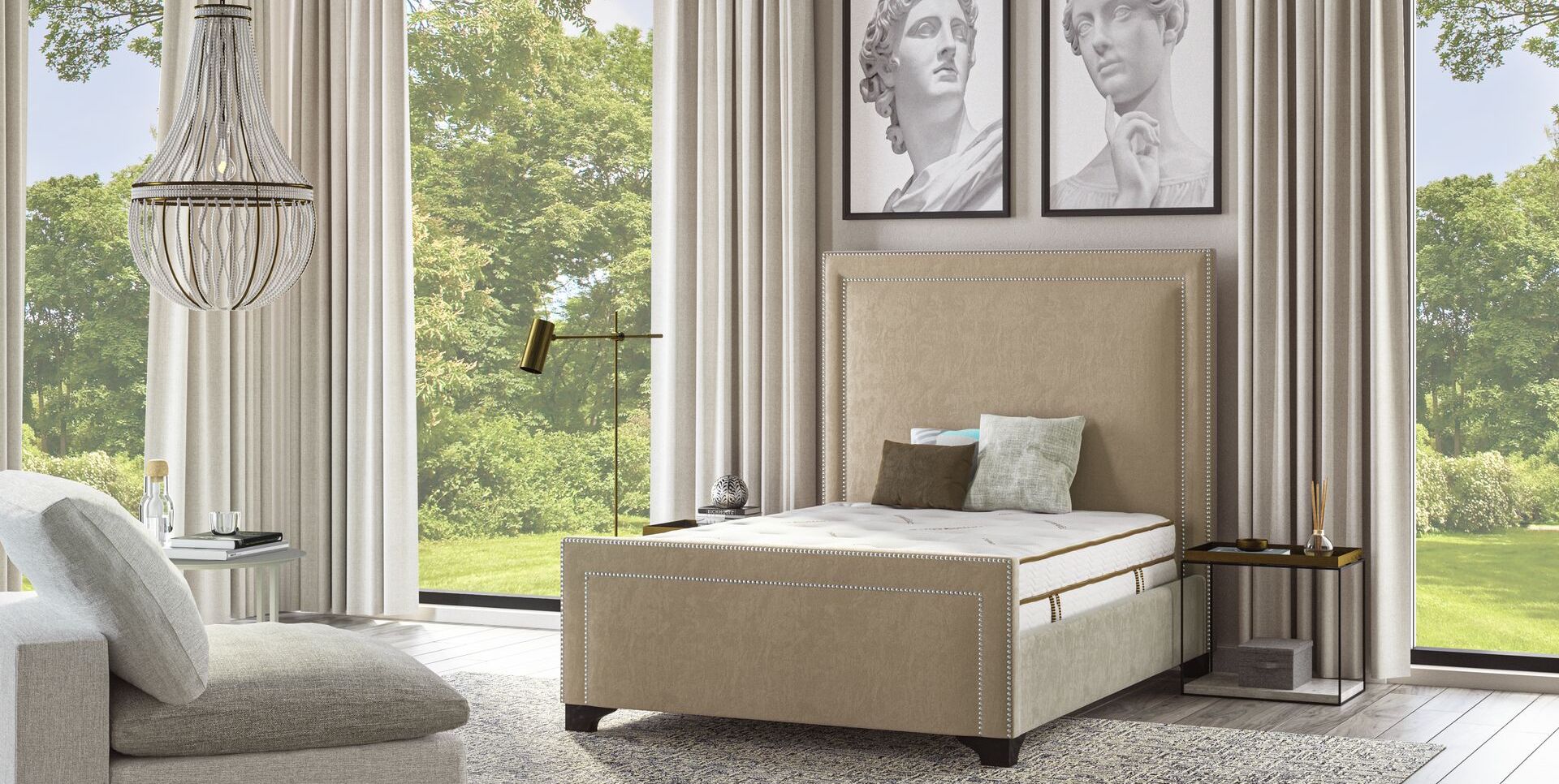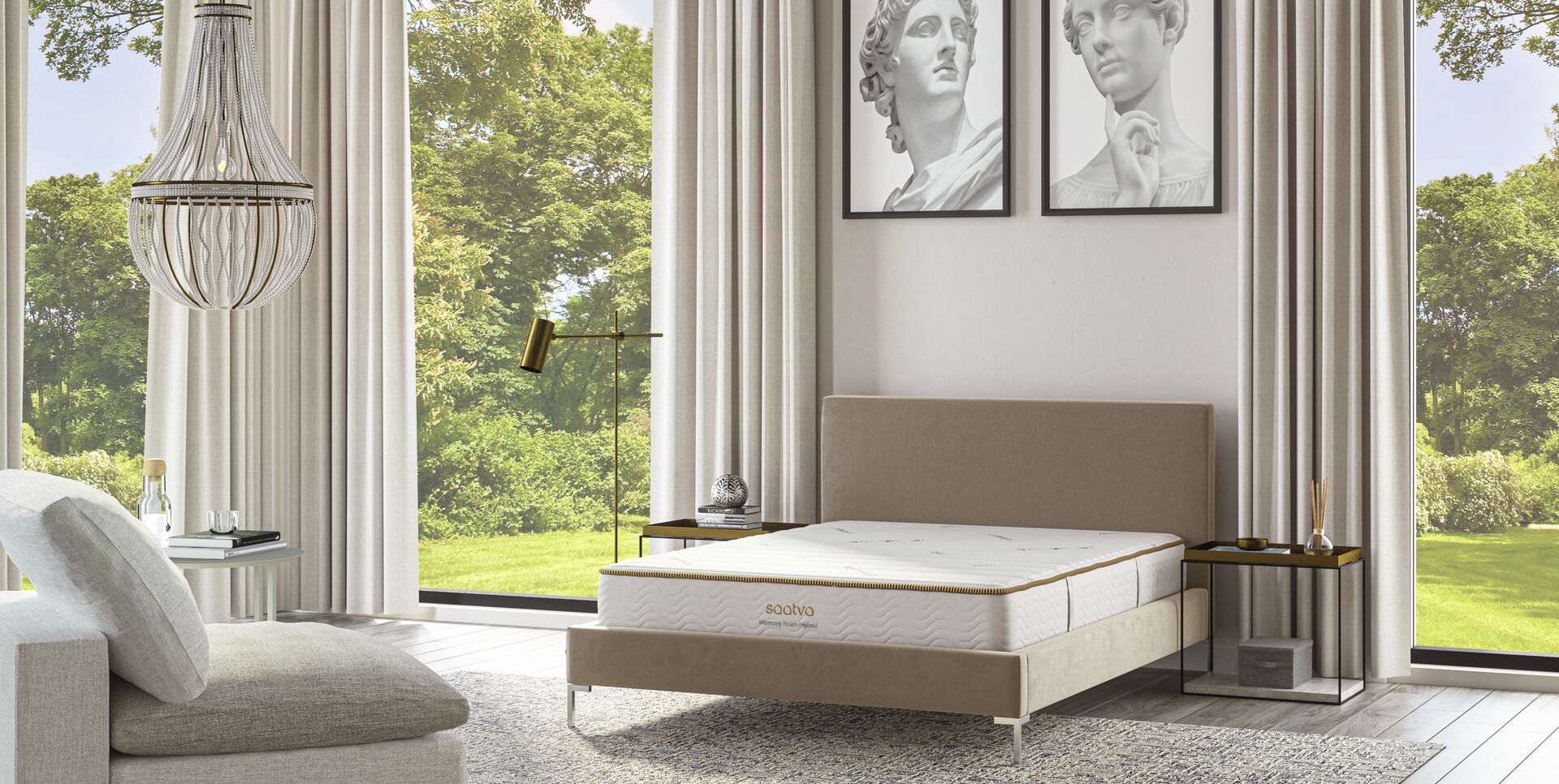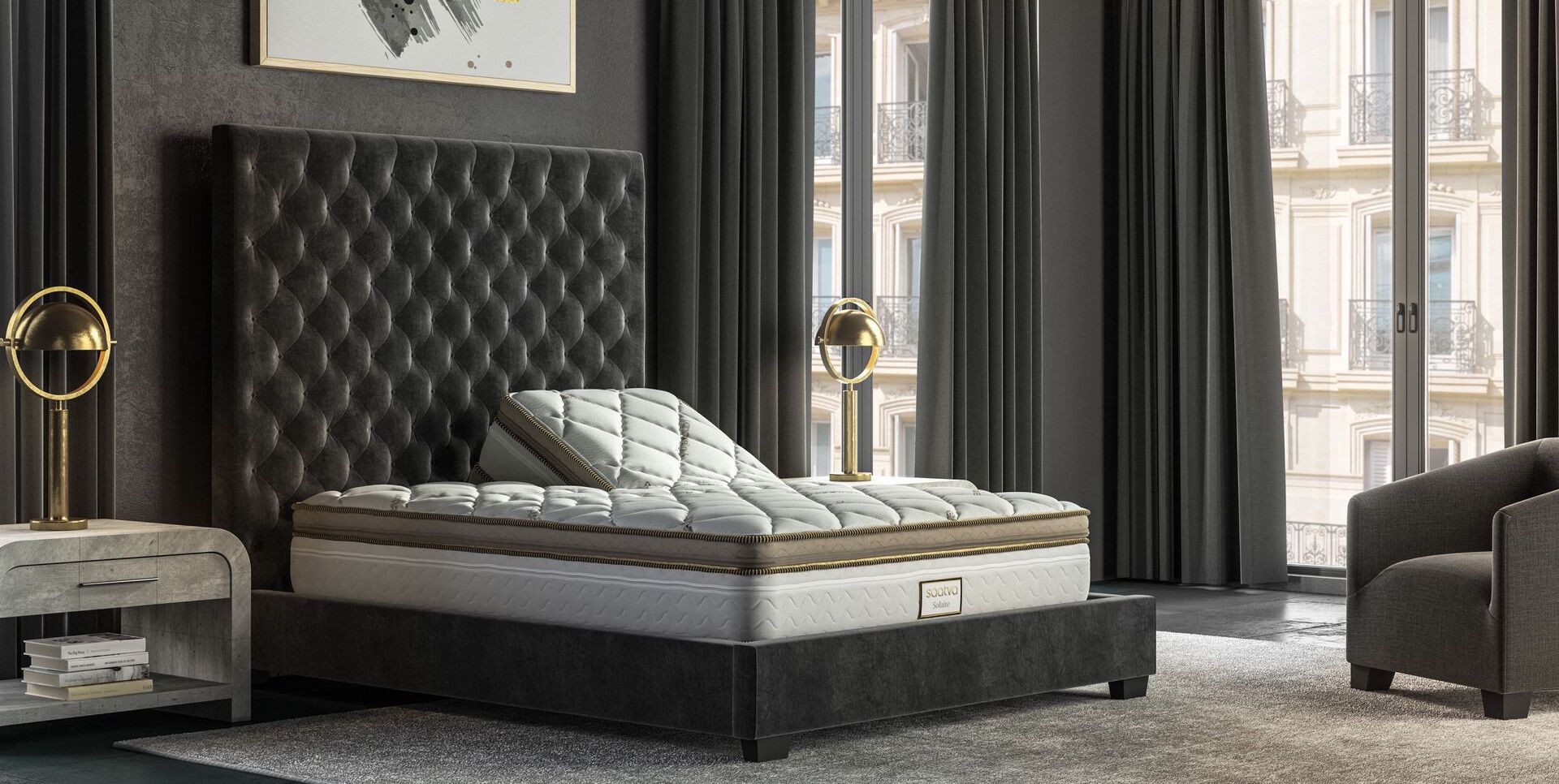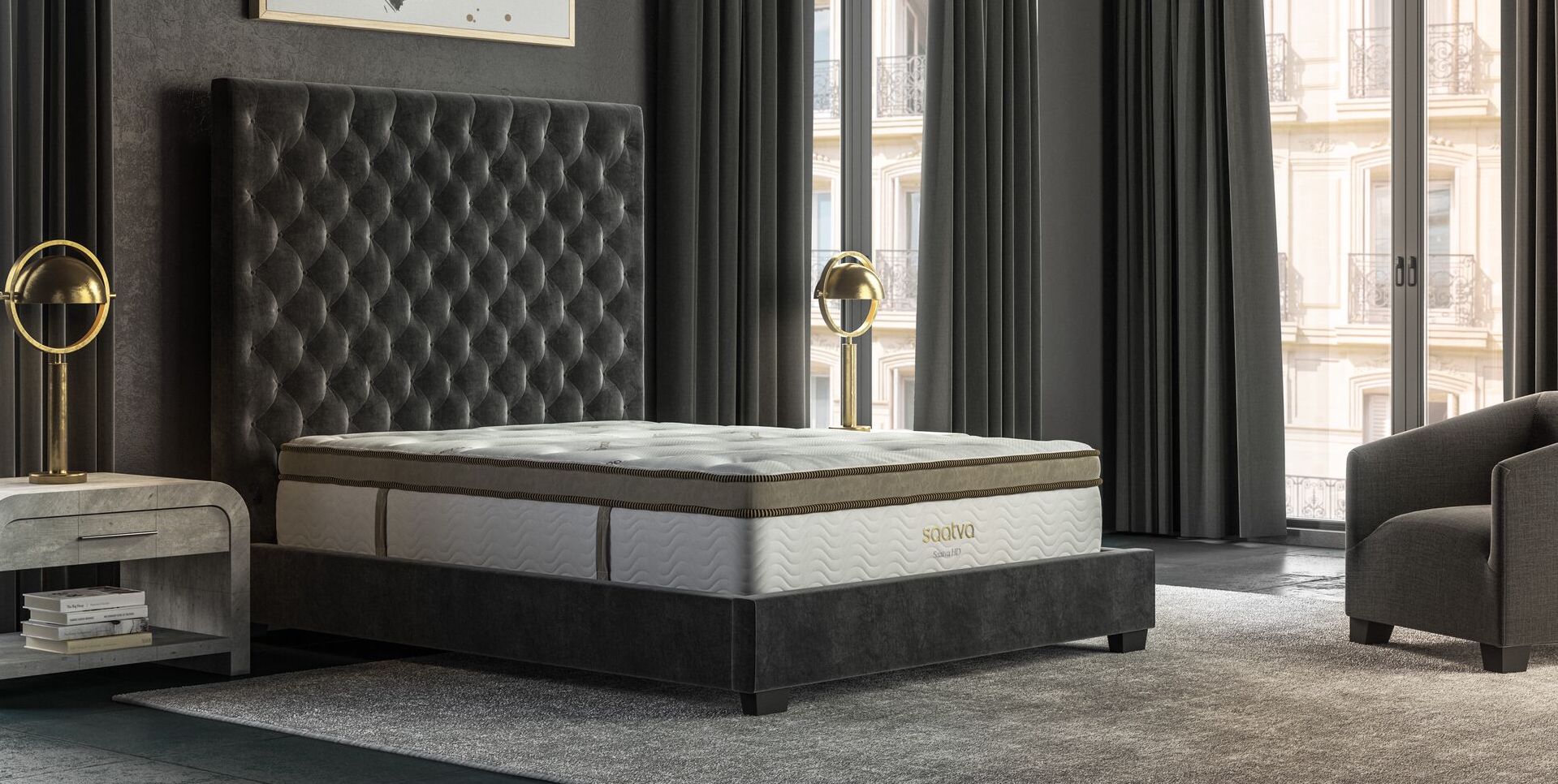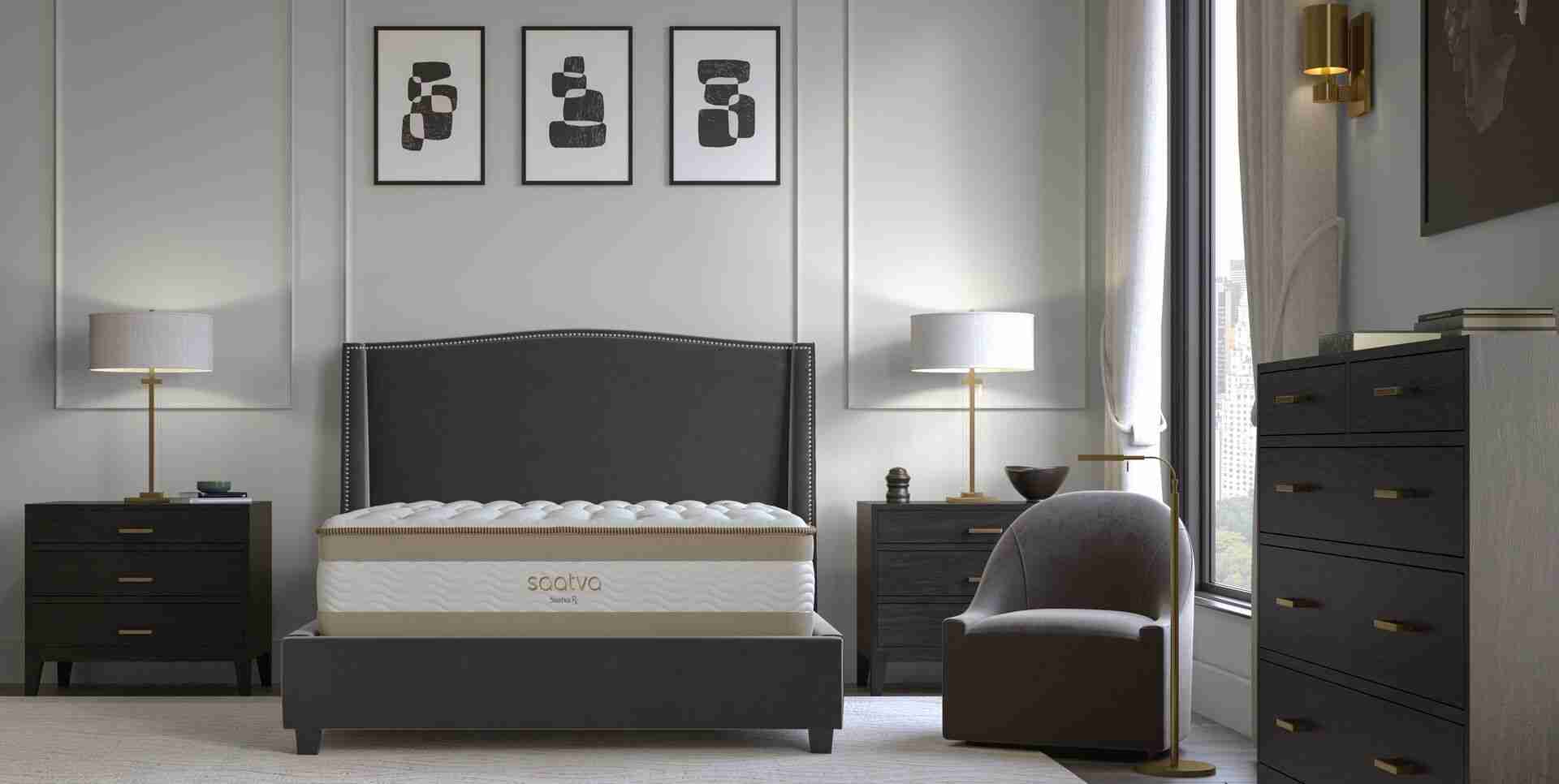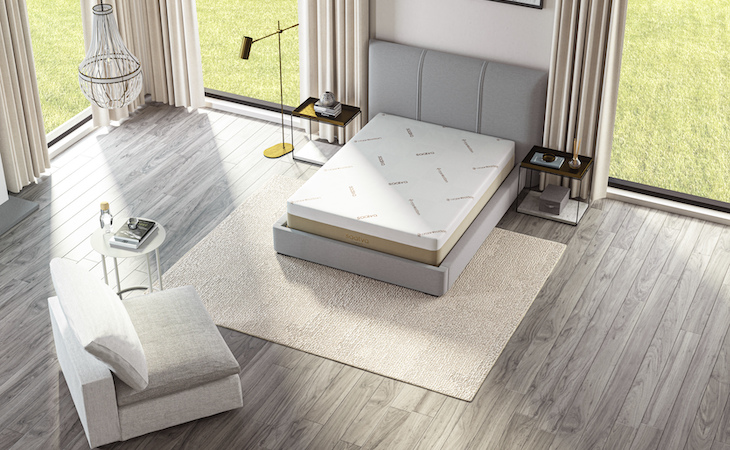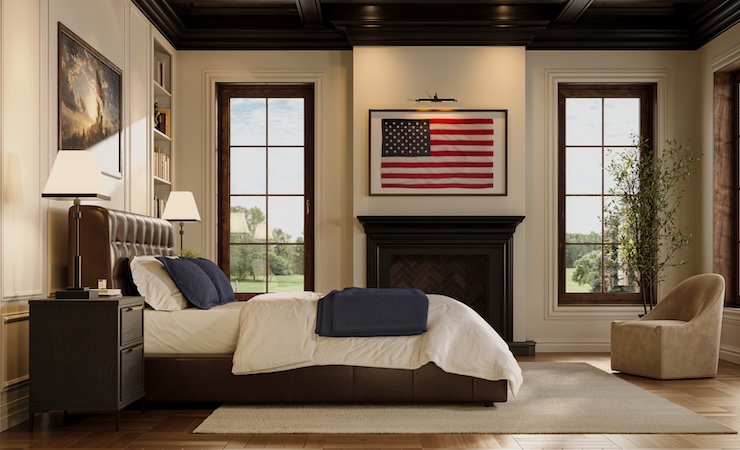In the past two years, cutting down on germs inside the home has been high on everyone’s priority list. The wide range of antimicrobial cleaning products available has expanded considerably as a result of the pandemic.
But did you know you can help protect your home and health with more than just cleaning products that kill germs? It turns out some materials are inherently antimicrobial—and some of these antimicrobial materials are commonly used to make mattresses.
So what exactly is an antimicrobial mattress—and do you really need one? Keep reading to find out.
What does antimicrobial mean?
The term antimicrobial refers to the ability of a substance or material to kill microbes or resist their growth. Many substances and materials (some organic and some synthetic) are considered antimicrobial. Various antimicrobial substances can have different effects on microbes, but they all reduce their presence.
Sometimes you’ll hear the terms antibacterial and antimicrobial used interchangeably, but they aren’t the same thing. Antibacterial substances are only effective against bacteria. Antimicrobial substances and materials are effective against all types of microorganisms, including bacteria, mold, fungi (antifungal), protozoa (antiprotozoal), and even viruses (antiviral).
What is an antimicrobial mattress?
Mattresses are a popular breeding ground for all types of microorganisms because they thrive in the warmth and moisture produced by your body.
Antimicrobial mattresses are made of materials that are considered inherently antimicrobial and therefore help inhibit the growth of microorganisms, including bacteria, fungi, and dust mites. Antimicrobial mattresses can be especially beneficial to people with allergies since many of these microorganisms are indoor allergens that can cause sleep-disrupting irritation.
Memory foam and natural latex are two types of mattress materials that are inherently antimicrobial. Memory foam has a dense cellular structure that makes it inhospitable for microorganisms to thrive. Natural latex, meanwhile, is naturally antimicrobial, hypoallergenic, and resistant to dust mites, mold, and mildew.
Additionally, some mattresses use an antimicrobial treatment in the cover. All of Saatva’s mattresses, for example, have been treated with Guardin™, our exclusive antimicrobial agent, to protect the fabrics in the mattresses and inhibit the growth of germs.
Guardin™ is made with a proprietary blend of essential oils and minerals. This blend includes thyme, geranium, lemongrass, and mint—but it’s completely odorless and colorless. It naturally inhibits the growth of bacteria, mold, and mildew and prevents the discoloration they can cause on the surface of a mattress.
Guardin™ antimicrobial treatment is biodegradable and doesn’t contain any fluorocarbons, toxic heavy metals, silver nanotechnology, triclosan, formaldehyde, or phthalates.
Of course, keep in mind that no mattress is guaranteed to be completely free of microorganisms. But an antimicrobial mattress can help inhibit their growth before they negatively affect your health.
Antimicrobial mattress FAQs
What does “antimicrobial mattress” mean?
An antimicrobial mattress is made from antimicrobial material and/or is treated with an antimicrobial agent. An antimicrobial mattress can help prevent the growth of microorganisms, including bacteria, mold, fungi, and viruses.
Is memory foam antimicrobial?
Due to its dense cellular structure, memory foam is an antimicrobial material that provides an inhospitable environment for microorganisms.
Are latex mattresses antimicrobial?
Mattresses made from natural latex are antimicrobial and resistant to dust mites, mold, and mildew. They’re also hypoallergenic.
Are antimicrobial mattresses worth it?
Mattresses are an attractive environment for all sorts of microorganisms. This can be particularly problematic for people with allergies.
If you’re prone to allergies, then choosing an antimicrobial mattress might make a difference between a good night’s sleep and no sleep. If, on the other hand, allergens aren’t a problem for you, then you might not notice a difference between sleeping on a regular mattress and an antimicrobial one.
Even if you don’t have allergies, though, you may want to consider an antimicrobial mattress. Taking into account the challenges of the pandemic, an antimicrobial mattress might offer you some additional protection against germs in the bedroom as well as peace of mind.
What is an antimicrobial mattress cover?
Some mattresses include an antimicrobial cover, which has been treated with an antimicrobial agent to help reduce the growth of microbes. This can help extend the lifespan of your mattress and prevent odors and discoloration.
If you choose a mattress with an antimicrobial cover, make sure it’s been treated with a biodegradable, nontoxic treatment.
Get an antimicrobial mattress from Saatva
Saatva has a variety of antimicrobial mattresses, including
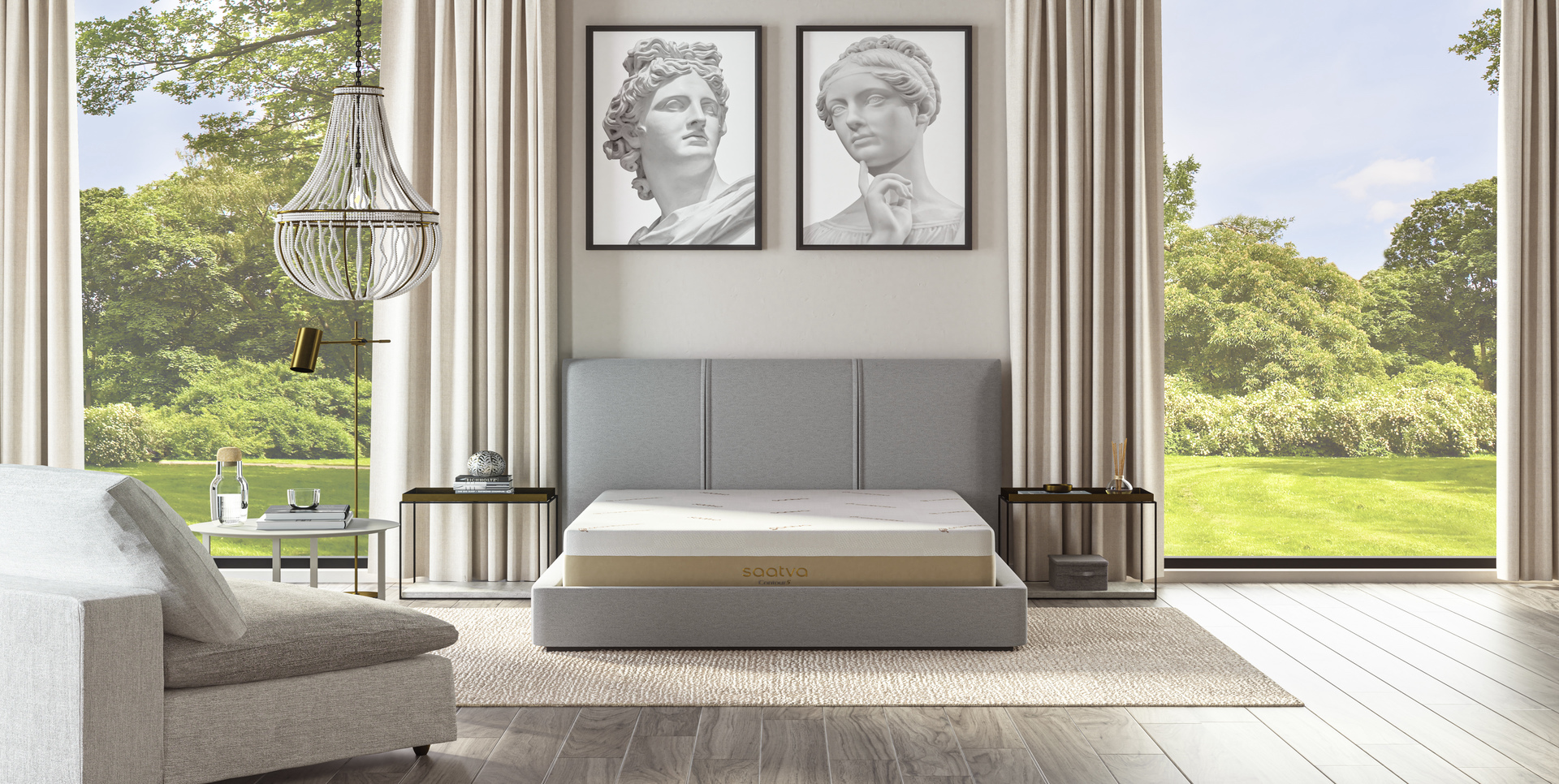
The most luxurious memory foam with adaptive cooling & body-hugging support
and
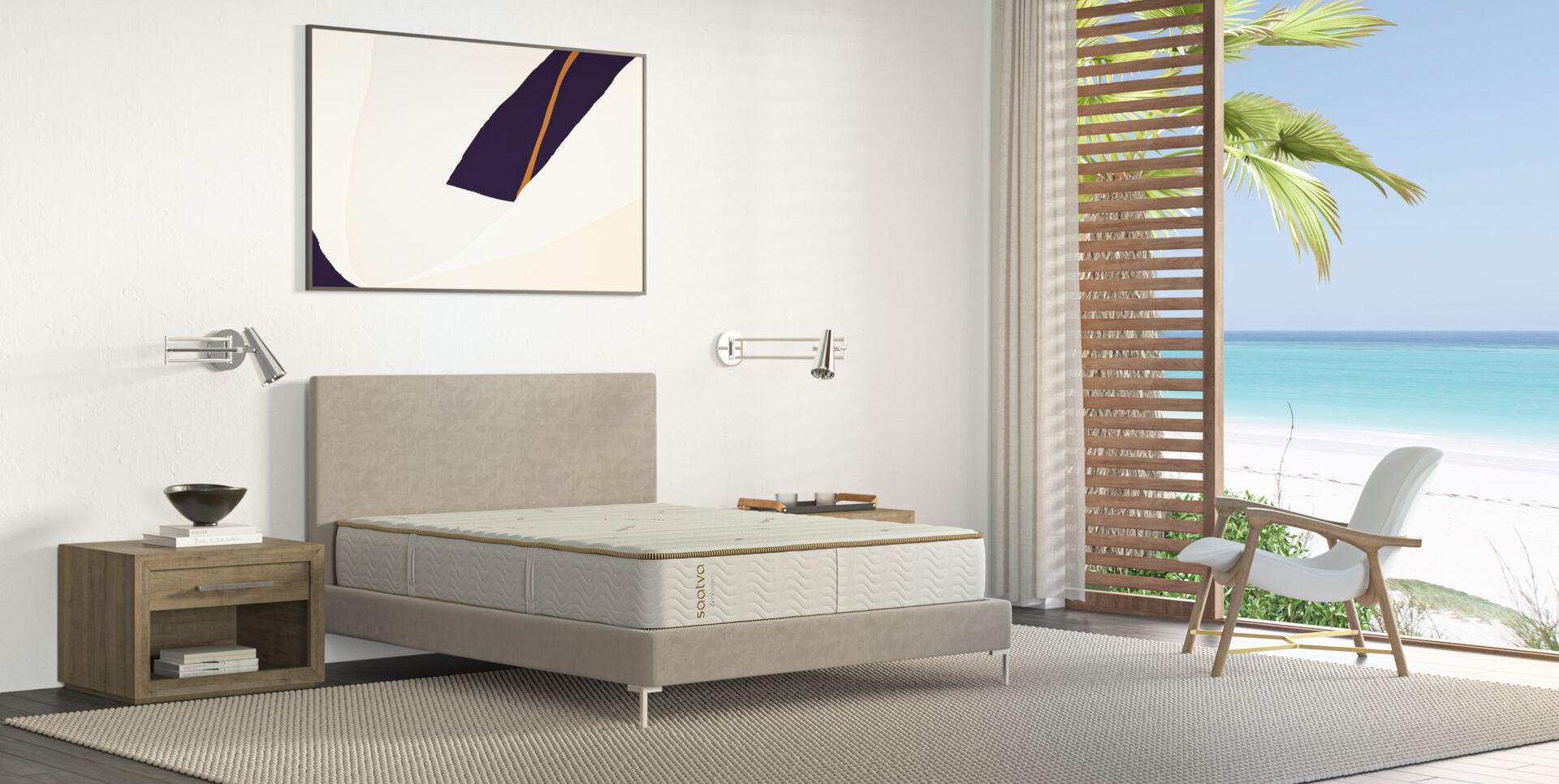
Our dual-sided organic natural latex mattress for buoyant, pressure-relieving comfort
. What’s more, all of our mattresses are treated with Guardin™, a proprietary blend of essential oils and minerals that naturally inhibits the growth of bacteria, mold, and mildew and prevents the discoloration they can cause on the surface of a mattress.
Each of our high-quality mattresses comes with a 365-night home trial so you can test one out before deciding if it’s right for you. Take our online mattress quiz to find the perfect antimicrobial mattress for you so you can get quality sleep.

